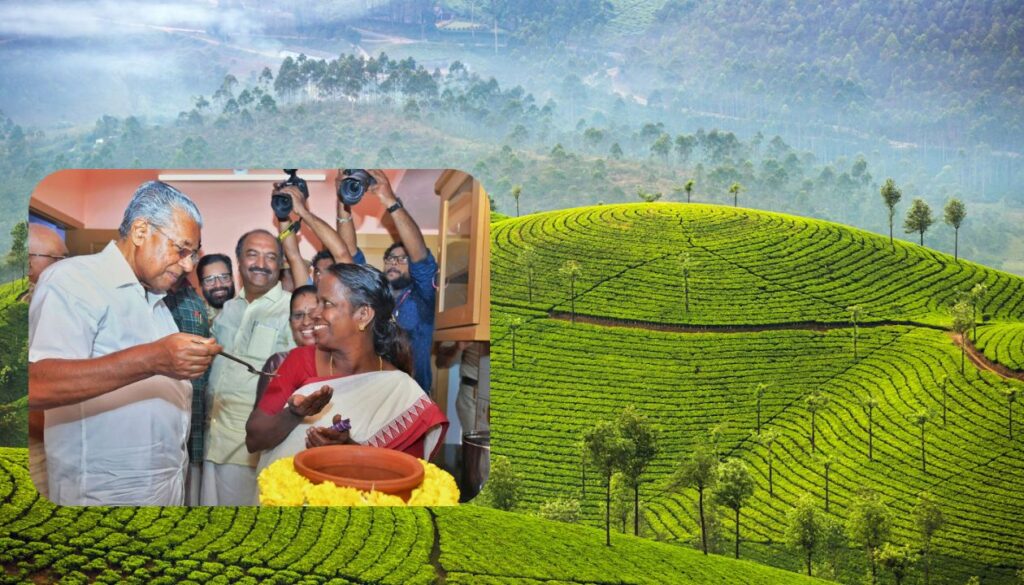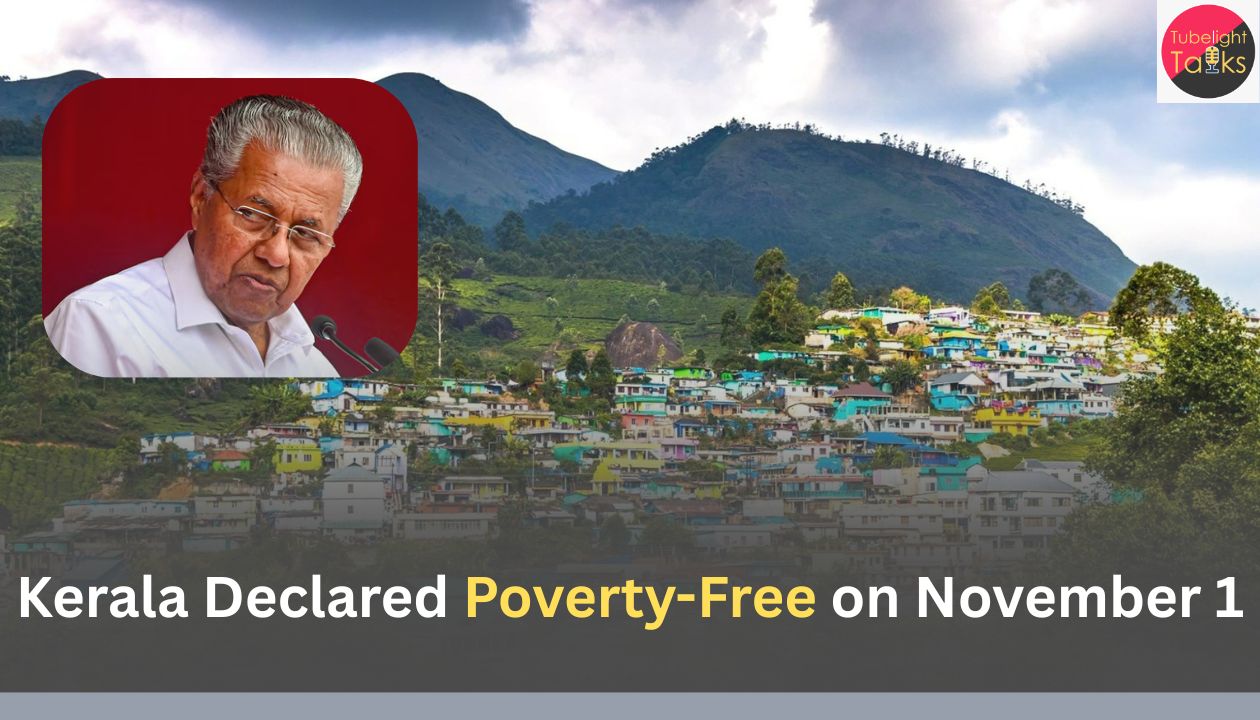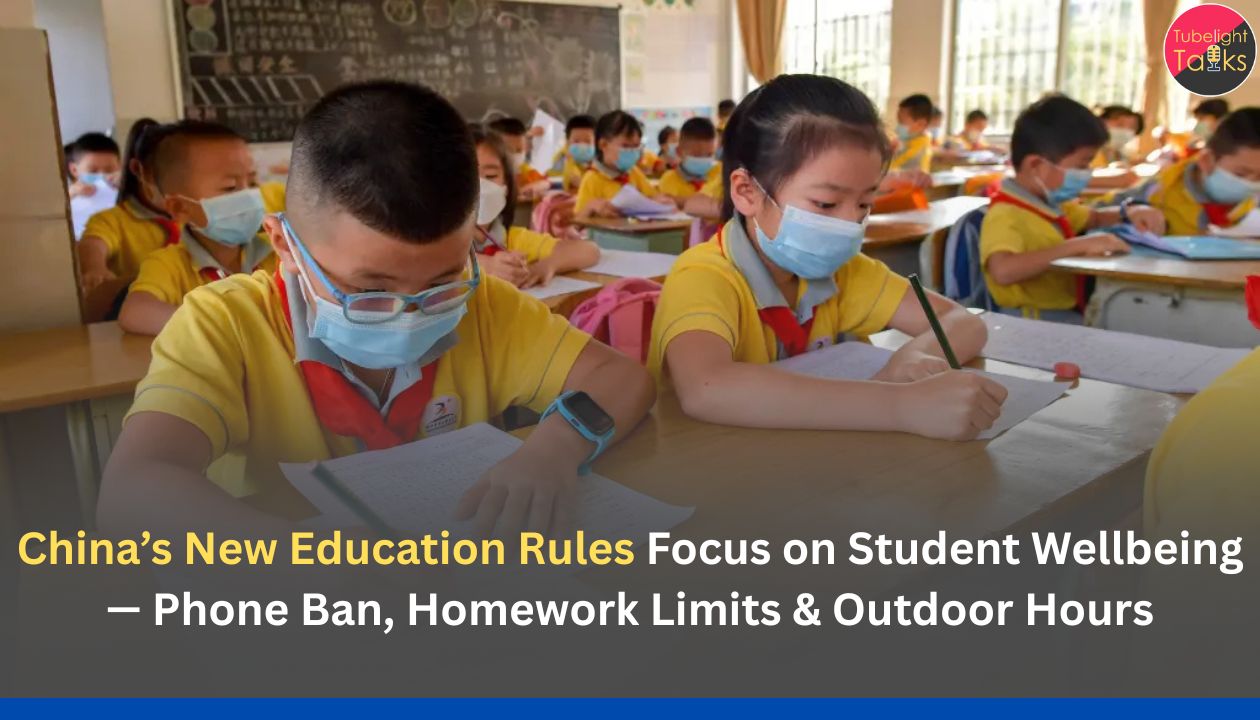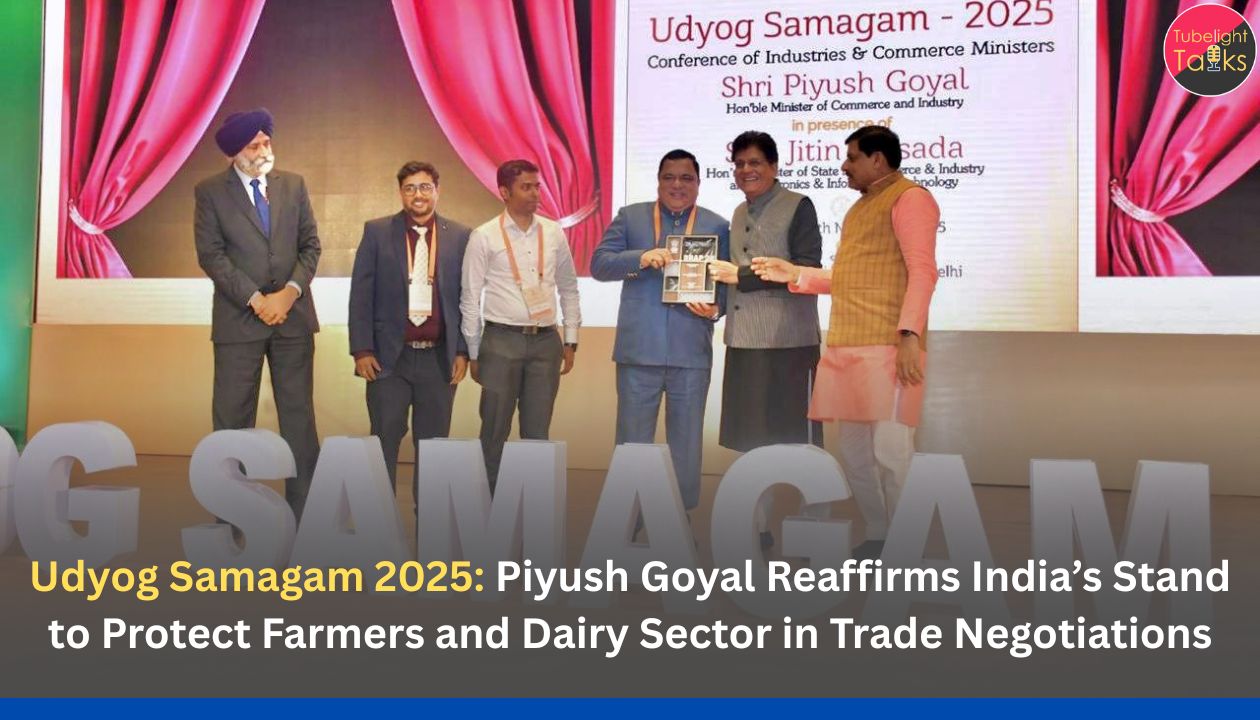Kerala Declared Poverty Free: Kerala Chief Minister Pinarayi Vijayan officially declared Kerala as a poverty-free state on November 1, which also marks the Kerala Formation Day. The announcement was made during a grand event in Thiruvananthapuram, attended by ministers, officials, and local representatives.
This is a historic milestone for Kerala, making it the first Indian state to achieve poverty-free status according to verified government data. Officials confirmed that no family in Kerala is now living below the poverty line (BPL) after an extensive household survey and social audit.
A Major Step Toward Equality
Kerala’s achievement represents years of consistent efforts in welfare, education, and healthcare. Known for its high literacy rate and progressive social policies, Kerala has long focused on improving people’s quality of life rather than just economic growth.
Before declaring the state poverty-free, the government verified that every family has access to basic necessities such as food, housing, education, healthcare, sanitation, and electricity. Officials from the Local Self-Government Department (LSGD) led the verification process, working closely with local panchayats and municipal bodies to ensure that no one was left out.
Key Welfare Schemes Behind the Success
Several social programs have been instrumental in this success. The Kudumbashree Mission, launched in 1998, empowered women by creating self-help groups that promoted entrepreneurship, small-scale industries, and financial independence. This program became one of the largest women-led community movements in the world and was crucial in eradicating poverty at the grassroots level.
The Life Mission project also played a vital role by providing free housing to homeless families. Thousands of people were able to move from temporary shelters to safe, permanent homes.

Kerala’s Public Distribution System (PDS) ensured food security for every household. Subsidized grains and essential goods helped protect vulnerable families from hunger. Along with this, pension schemes, social security funds, and healthcare benefits strengthened the financial base of weaker sections of society.
Education has been another cornerstone of Kerala’s success. With one of the highest literacy rates in India, the state has empowered its people to secure better jobs and lead self-reliant lives. Its public healthcare system, known for accessibility and quality, helped improve health outcomes for all.
A Model for Other States
Experts believe that Kerala’s model can inspire other states in India. Its success lies in inclusive governance, community participation, and transparency. Kerala proved that poverty elimination is not only an economic task but also a social responsibility.
Rather than focusing only on GDP growth, Kerala emphasized human development — giving importance to dignity, equality, and opportunity for all. This balanced approach between economic planning and social justice has brought long-term progress.
Continuing the Journey
Even as Kerala celebrates this achievement, the government plans to continue working for economic stability and sustainability. Officials say that challenges like inflation, unemployment, and climate change could affect vulnerable groups in the future. To address this, the government aims to expand skill-development programs, employment schemes, and environmental protection measures.
The focus will remain on ensuring that every citizen enjoys a life of dignity and financial independence — keeping Kerala truly poverty-free for generations to come.
Sant Rampal Ji Maharaj is eradicating poverty through Annapurna Muhim
Under the spiritual and social mission led by Sant Rampal Ji Maharaj, thousands of people are also moving towards a poverty-free life. Through the ongoing Annapurna Muhim, Sant Rampal Ji Maharaj Ji has already adopted over 1,000 needy individuals, providing them with food, shelter, and education. More than 500 houses are being built for homeless families, and essential resources like water pipes, motors, and daily-use items are being distributed in villages to improve living conditions.
His devotees also work to support flood-affected families and ensure no one sleeps hungry. By promoting a life free from dowry, intoxication, and wasteful spending, Sant Rampal Ji Maharaj Ji is setting a real example of how spiritual guidance can lead to economic stability and a poverty-free society.
Read Also: Why No One Is Teaching Financial Literacy in Government Skill Programs
Conclusion
Kerala’s declaration as a poverty-free state marks a proud moment for India. It stands as a reminder that when education, equality, and social welfare work together, even the toughest challenges can be overcome.
As the state celebrates its Formation Day, Kerala has shown that real development means progress for every person, not just for a few — proving that a poverty-free India is indeed possible.
FAQs
1. What does Kerala’s poverty-free status mean?
It means that, as per government verification, no family in Kerala now lives below the poverty line. All families have access to basic needs like housing, healthcare, and education.
2. When was Kerala declared poverty-free?
Kerala was officially declared a poverty-free state on November 1, 2025, which is also Kerala’s Formation Day.
3. Which schemes helped Kerala achieve this milestone?
Key schemes include the Kudumbashree Mission, Life Mission, and the Public Distribution System (PDS), along with strong education and healthcare systems.
4. Is Kerala the first state in India to be declared poverty-free?
Yes, Kerala is the first Indian state to be declared poverty-free after official verification.
5. What are Kerala’s future plans after this declaration?
The state will continue to focus on skill development, job creation, and sustainable growth to ensure that poverty does not return.










